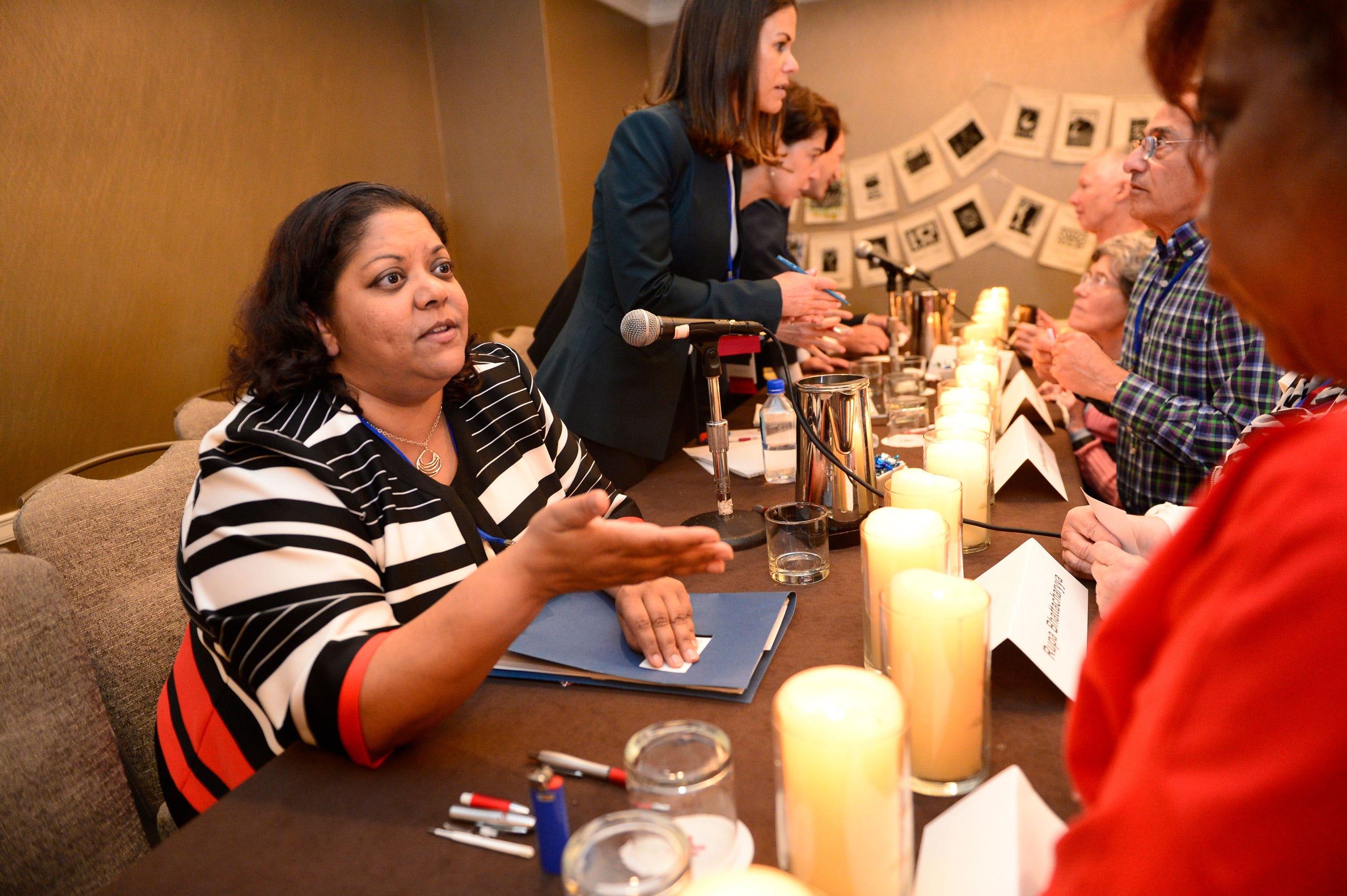Rupa Bhattacharyya ’95 can pinpoint the hardest decision she had to make in her 25 years as a government attorney. As special master of the September 11th Victim Compensation Fund, or VCF, she faced a dilemma in 2019: the fund was running out of money. Indeed, the fund did not have enough money to pay existing claims, let alone future claims. Her only choice, she determined, was to cut claims that had already been filed by 50% and claims that were still to be filed by 75%.
The reaction was swift — but not against her decision.
“The overwhelming response that we got was, the VCF is doing what it needs to do,” she said. “The special master didn’t have a choice. There are just more claims than anyone anticipated and so Congress has to fix it. It was really remarkable, because it’s not usually what you hear in response to an executive branch action of that kind.”
The proposed reduction in compensation led to an emotional congressional hearing, in which comedian Jon Stewart and survivors beseeched Congress to provide necessary funds for the growing list of people whose health and welfare were harmed by the September 11th attacks, including diagnoses of cancer and respiratory diseases years after the event. Bhattacharyya also testified, noting “the plain fact is that we are expending the available funds more quickly than assumed, and there are many more claims than anticipated.”
Soon thereafter, Congress voted to reauthorize and provide permanent funding to the VCF, which previously had a filing deadline of December 2020, to allow victims and their families to file claims through 2090.
“The legislation for us was a real demonstration of confidence that we’re doing what we’re supposed to be doing,” said Bhattacharyya, “and I think a recognition on the part of Congress both that there is a tremendous need here and it’s one that can’t be anticipated. We just don’t know how many people are ultimately going to have to [be compensated].”
The VCF initially operated from 2001-2004 under Special Master Kenneth Feinberg, with the mandate to provide compensation for those who were injured or killed as a result of the terrorist attacks of September 11, 2001, or the removal of debris in the immediate aftermath. It was reactivated in 2011 for five years and then reauthorized for another five year in 2015. In the fund’s current incarnation, Bhattacharyya typically evaluates claims of medical conditions and economic loss arising from exposure to the crash sites. As special master, she is empowered to make the final determination on claims, and says she operates under three guiding principles: awards have to be fair to claimants; consistent with the statute, including caps on certain losses; and accountable to the taxpayers. “No amount of money is ever going to be able to compensate these people for the things that they have lost, especially the families who have lost loved ones to 9/11-related illnesses,” she said. “No one’s ever going to be completely happy with the result from the VCF. But we are gratified that in most cases, people are satisfied.”
Bhattacharyya was appointed special master by the U.S. attorney general in July 2016. Prior to that, she was director of the Department of Justice’s Torts Branch, for which she managed two other compensation programs, the Vaccine Injury Compensation Program and the Radiation Exposure Compensation Act Program. She also practiced for the DOJ as a litigator defending government entities and individual government employees as well as for the Department of the Treasury as deputy assistant general counsel for international affairs.
After graduating from HLS, Bhattacharyya gravitated toward government service for the opportunity to have immediate hands-on experience and an interesting mix of legal work, she said. Also, as the child of immigrants who came to the United States from India in the 1960s and became American citizens, she takes a special pride in working for the U.S. government: “Being able to stand up in court and say that I represent the United States of America, you can’t beat that.”
To commemorate the 20th anniversary of the 9/11 attacks, Bhattacharyya will travel to New York with her team to participate in a variety of events, including a virtual tour of the 9/11 Museum & Memorial. She recalls the day 20 years ago when people gathered around a TV in her office building in Washington, D.C., to see the second plane hit the World Trade Center tower, and realizing then that it was not an accident. Twenty years later, the VCF helpline receives about 1,000 calls a week from people seeking help. For them, as Bhattacharyya knows well, that day has not really ended.
